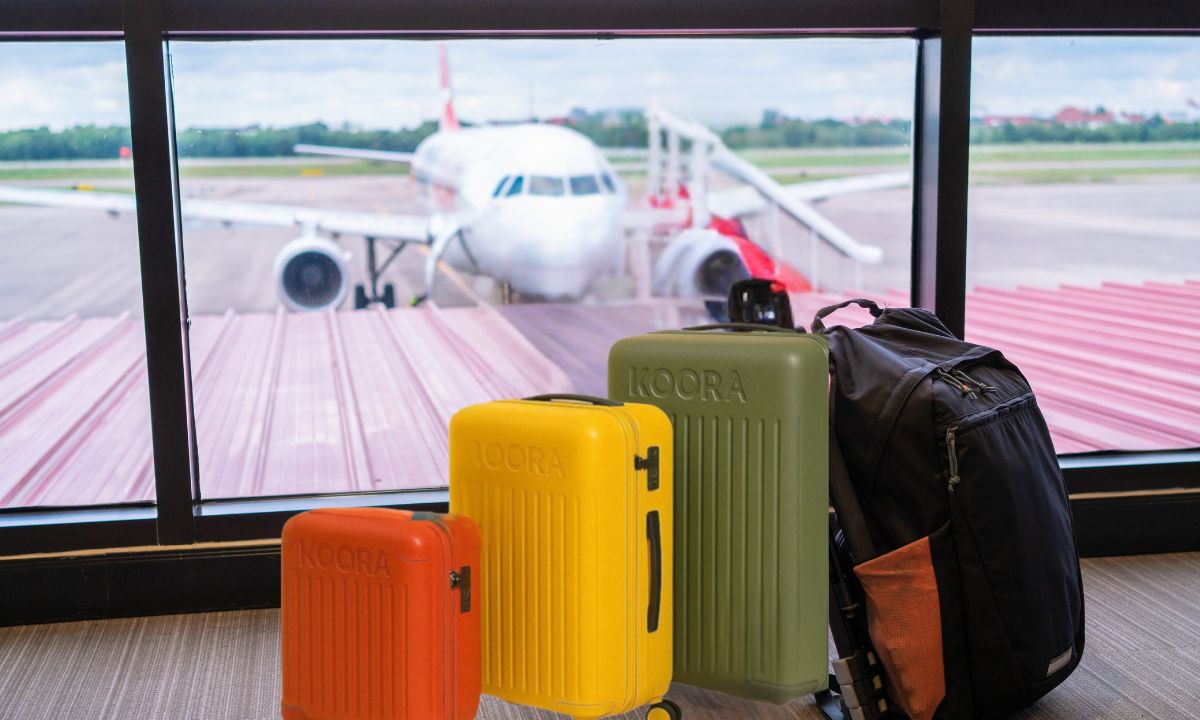
Smart Luggage Showdown: Are Tech-Enabled Carry-Ons Worth It in 2025?
If you’ve scrolled through Instagram or walked through an airport lately, you’ve probably noticed them—sleek, futuristic-looking carry-ons that do more than just carry your clothes. They charge your phone, weigh themselves, lock remotely, and even track their location. Welcome to the era of smart luggage.

But with prices often double (or triple) that of a regular suitcase, the big question for travellers in 2025 is:
Are tech-enabled carry-ons worth it?
Let’s look at what smart luggage offers, what to watch out for, and whether you should invest in one for your next adventure.
What is Smart Luggage, Exactly?
Integrating smart features into suitcases and carry-ons has defined the category known as smart luggage. Some common smart features include:
-
These travellers benefit from embedded power storage units to recharge their phones, tablets, and computers.
-
Lost luggage can be located by using GPS tracking capability.
-
Users can lock and unlock their suitcases with smartphone applications.
-
The device measures your luggage weight through its integrated scale.
-
The auto-following feature enables your suitcase to move after you by itself.
These features aim to solve common travel frustrations—low battery anxiety, lost bags, and TSA worries—and give travellers more control.
Why Smart Luggage Is Trending in 2025
Several factors have made smart luggage hotter than ever this year:
-
Remote Work and "Workations": People are travelling more often and for longer periods. Staying charged and connected on the move is a must.
-
Increased Flight Delays and Mishandled Bags: GPS tracking gives peace of mind during hectic travel.
-
Security Focus: With cybersecurity threats and theft concerns rising, smarter locks and bag tracking are appealing.
-
Travel Minimalism: Travellers are looking for luggage that does double duty without the need for extra gear.
In short, smart luggage isn’t just about showing off at the airport anymore—it’s about solving real travel problems.
Popular Smart Luggage Features (and Why They Matter)
If you’re thinking about going smart, here are the features that travellers love most in 2025:
1. Built-In Battery Packs
No need to hunt for a charging outlet at the airport again. Smart bags often feature built-in power banks with USB-C and wireless charging options. Some even allow simultaneous charging of multiple devices.
Airlines require that batteries be removable. Always check if the battery can pop out easily, especially for carry-on luggage.
2. GPS Location Tracking
Smart luggage can pinpoint its exact location via a mobile app. Lost your bag? No problem—your phone will show you where it’s hiding.
This is especially helpful for tight connections or airlines with a history of misplaced luggage.
3. Remote Locking Systems
Smart locks mean you can lock or unlock your bag via your phone. No more worrying about lost keys or forgotten combinations. Some even alert you if someone tries to tamper with your bag.
4. Weight Sensors
Overpacking? Some smart bags have built-in scales that display the weight when you lift the handle. No more awkward moments at check-in counters, trying to reshuffle clothes to avoid overweight fees.
5. Auto-Follow Robots
High-end models can follow you around like a robot using sensors and cameras. Cool? Yes. Practical for daily travel? Debatable.
Downsides and Challenges of Smart Luggage
As awesome as tech-enabled carry-ons sound, they’re not without their flaws.
1. Airline Restrictions
Since 2018, airlines have banned smart luggage with non-removable batteries in both checked and cabin bags due to fire risk concerns. Make sure any smart luggage you buy today meets this rule.
2. Higher Cost
Expect to pay significantly more—sometimes $400 to $800—for quality smart luggage compared to a basic premium carry-on in the $200–$300 range.
3. Added Weight
Technology adds weight. If you're flying an airline with strict weight limits (especially budget carriers in Europe and Asia), every ounce matters.
4. Connectivity Issues
GPS and app functions sometimes depend on mobile service. In some countries or in remote areas, your tracking might not be super reliable.
5. Breakable Tech
The more gadgets your bag has, the more things can malfunction. Broken sensors, failed locks, or non-charging batteries can turn a smart bag into an expensive regular suitcase.
Best Smart Luggage Brands in 2025
If you’re ready to leap, a few brands have emerged as favourites among frequent travellers this year:
-
Away “The Bigger Carry-On with Pocket”: Sleek design, removable battery, and built-in ejectable charger.
-
Samsara Smart Carry-On: Aluminium body, integrated tracking, app-controlled lock, and stylish looks.
-
July Carry-On Pro: Ejectable battery, crush-proof design, and a hidden laptop sleeve.
-
Monos Hybrid Carry-On: GPS, battery, ultra-light magnesium frame.
-
Koora Expandable Carry-On: New in 2025, with a sleek appearance and expandable storage, all in a lightweight design.
All of these meet airline regulations and have removable batteries to keep you flight-ready.
Are Smart Carry-Ons Worth It in 2025?
It depends on how often you travel and what type of traveller you are.
-
Frequent flyers (business travellers, digital nomads): Definitely yes. Staying charged, tracking your bag, and avoiding check-in chaos are game-changers.
-
Vacation travellers (1–2 trips a year): It might be overkill unless you find a good deal.
-
Minimalist/light travellers: A traditional, ultra-light carry-on might still serve you better.
If you’re always worried about losing luggage, needing extra security, or juggling multiple devices, smart luggage could be worth the upgrade. Just make sure you choose a reputable brand, understand battery rules, and weigh the cost-benefit for your travel style.
Final Takeaway
Carry-on luggage technology has evolved from a travel accessory to necessary equipment for some 2025 travellers. Whether it's GPS tracking, built-in charging, or smart locks, these features can remove a lot of stress from the journey.
However, smart luggage isn’t a must-have for everyone. Before you buy, think about your travel habits, the airlines you usually fly, and how much you value (or need) tech convenience on the go.
For many modern travellers, though, one thing is clear: Once you fly smart, it’s hard to go back.



Leave a comment
This site is protected by hCaptcha and the hCaptcha Privacy Policy and Terms of Service apply.